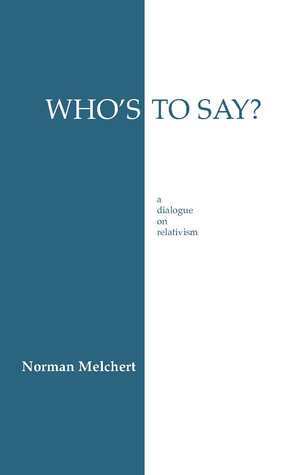What do you think?
Rate this book


96 pages, Paperback
First published October 1, 1994
"Think about the line, 'custom is king over all.' Taken one way it just says human beings live very diverse lives and believe very different things. And that is certainly true, but neither very exciting nor profound.
"But that sense slides into others which amount to a kind of counsel of despair. So we find ourselves saying that there's no telling what's really good or true. That maybe the notions of 'absolutely good' or 'objectively true' don't even make sense—that all we have are opinions anyway. So who's to say? Maybe one opinion is as good as another. It all comes down to personal preference in the end anyway. And in the end we are left with that miserable concept 'true-for-me.'
"But think how it originates. I hear it from my students when they are being pressed hard in argument. they try to escape this way and that, but nothing works. And finally they take refuge in 'Well, anyway, it's true for me!'
"I don't want to be too hard on them; they are still young. But they could admin defeat—say they were mistaken and have now learned something. Or they could say, 'I don't see how to answer that right now; let me think about it and I'll get back to you.' Or they could just admit their ignorance. But 'true-for-me' is the perfect defensive maneuver. It allows us to keep whatever belief we are fond of in a completely secure way. How could anyone show me that something I believe sincerely isn't true for me? Climbing back into that hole, I am completely safe.
"Besides, there is something dishonest about the phrase. It's kind of a cowardly move. To venture out in public with what you think is true takes courage. You expose yourself. Not just your beliefs, but yourself, since you are the one who has accepted these beliefs. And that's scary.
"But Socrates said we shouldn't be afraid to do that; we shouldn't be afraid to be shown wrong. He even said it is a great benefit to us if someone shows us we are mistaken, since having false opinions is an evil we should wish to be without."
"Questions about the good life are not ones we can shrug off. They do get answered one way or another. And if we don't do our best to answer them well, the lazy, the wicked, and the self-interested will answer them for us."